Cape Cod Times
New Hyannis building will better treat water for PFAS
Contaminants will be brought in line with new standards.
HYANNIS — The Hyannis Water System has begun work on a new $12 million water filtration building at the Maher Water Treatment Plant off Old Yarmouth Road.
The new facility will enable the system to meet anticipated new federal and state regulations that will be stricter for contaminants of emerging concern, including PFAS and 1,4-Dioxane.
“It’s a new beginning for water treatment in this town,” said Stephen O’Neil, chairman of the Hyannis Water Board.
The new water filtration building will have a capacity of 1,500 gallons per minute. It will remove PFAS with activated carbon filtration and remove 1,4-Dioxane by advanced oxidation with peroxide and ultraviolet light.
Barnstable Public Works Director Daniel Santos said the new building will have a number of components and multistage treatment systems, valves, piping and controls that represent the latest technology available.
The building is expected to be completed in approximately 13 months, but contractors have incentives to accelerate the project, according to Santos.
Three of the system’s 12 wells are located at the Maher site, and two of them are currently shut down, pending completion and implementation of the new water filtration building.
The project is being financed through the Massachusetts Department of Environmental Protection’s State Revolving Fund Drinking Water Program. The program provides communities low-cost financing to assist in complying with federal and state drinking water requirements and to protect public health.
“State Revolving Fund loans are vital to the efforts of local communities as they seek to repair, expand and upgrade their drinking water and wastewater infrastructure,” Edmund Coletta, a spokesman for the state Department of Environmental Protection, said in an email to the Times. “MassDEP is pleased to see these funds supporting this important project in Hyannis, which will address the issue of contaminants impacting source water wells and produce a clean, fresh supply for the system’s customers.”
The new water filtration building and technology will provide the system with an advantage to meet new standards proposed by the state that would significantly reduce permitted levels of the contaminants.
Earlier this year, the Department of Environmental Protection proposed revisions to rules for cleanups of sites with groundwater affected by PFAS, as well as new drinking water standards that are much more stringent than current requirements. In both cases, the proposed revisions would reduce the acceptable level of PFAS from 70 parts per trillion to 20 parts per trillion.
In addition, the new water filtration system will remove manganese and iron from the water system by a greensand filtration process.
“There are standards for (magnesium and iron), but it also makes treatment of PFAS more efficient when you remove them,” Santos said.
The new water filtration building will also provide a significant cost savings to the Hyannis Water System by eliminating the need to purchase water from Yarmouth. Hyannis has been buying water from that town since 2015 to meet demand after closure of some wells due to contaminant levels that exceeded a federal health advisory.
The Hyannis Water System currently pays approximately $1 million per year to purchase water from Yarmouth, according to Santos.
Barnstable Town Council President James Crocker praised Santos and his team for incentivizing accelerated construction, saying the savings from purchasing water would more than offset any incentives offered.
PFAS are a class of man-made chemicals considered to be contaminants of emerging concern thought to be associated with adverse health effects. They are commonly found in firefighting foams, stain- and water-resistant products, coatings, outdoor clothing, carpets and many other household items.
The liquid 1,4-Dioxane, which the U.S. Environmental Protection Agency classifies as a likely carcinogen, is used in the manufacture of chemicals and found in many products, including paint strippers, aircraft de-icing fluids and some consumer products such as deodorants and cosmetics.
Efforts to remediate groundwater and soil contamination are currently underway at the Barnstable County Fire and Rescue Training Academy and Barnstable Municipal Airport, where products containing the chemicals have been used in the past.
PFAS contamination twice has triggered temporary public health advisories in Hyannis since 2015. The advisories warned a “sensitive group” including infants, pregnant women and nursing mothers against consuming water from the Hyannis water supply.
“This will treat the water down to the proposed new standards, and (beyond) to zero,” Santos said. “There will be no PFAS in the system when it’s up and running.”
— Follow Geoff Spillane on Twitter: @GSpillaneCCT.
Cape Cod Times – New Hyannis building will better treat water for PFAS
